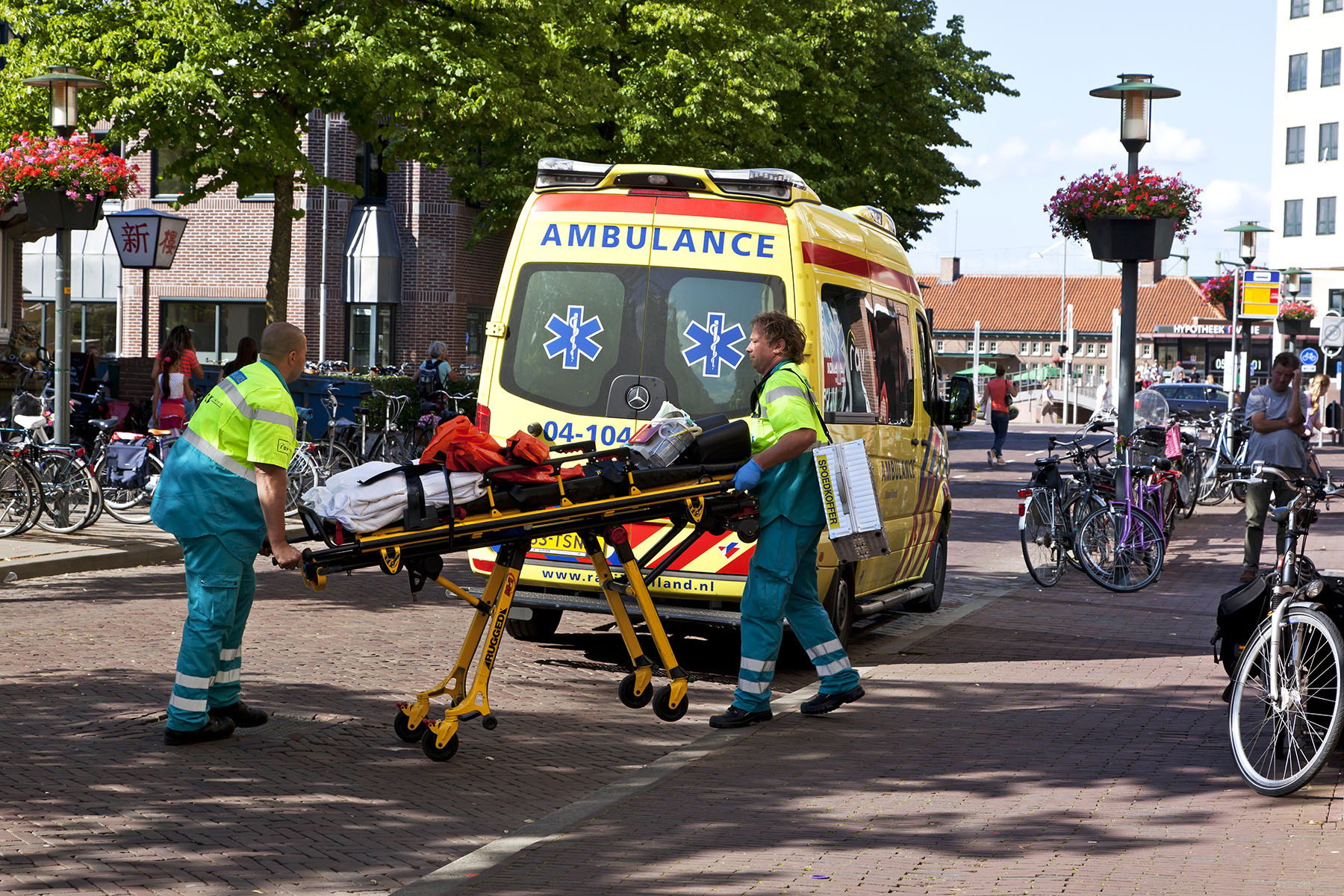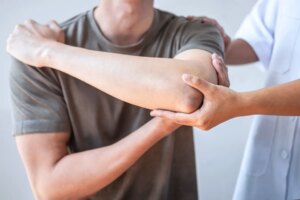An important part of settling in a new country involves familiarizing yourself with the healthcare system. This includes learning about treatment options for sexual and reproductive health.
Fortunately for expats, the Netherlands’ healthcare system consistently ranks as one of the best in the world. The Dutch strive to provide universal access to sexual and reproductive healthcare, making sexual health services easy to access.
This article explains everything you need to know about sexual and reproductive health in the Netherlands, including the following:
- Attitudes towards sex and sexuality in the Netherlands
- Accessing sexual health services in the Netherlands
- Insurance for sexual and reproductive healthcare in the Netherlands
- Contraception in the Netherlands
- Pregnancy and childbirth in the Netherlands
- Abortion in the Netherlands
- STIs and STDs in the Netherlands
- Erectile dysfunction treatment in the Netherlands
- Period products in the Netherlands
- Cancer screenings in the Netherlands
- Services dealing with sexual problems in the Netherlands
- Services dealing with sexual abuse and assault in the Netherlands
- Young people’s sexual health in the Netherlands
- LGBT+ sexual health in the Netherlands
- Useful resources
Cigna Global
Enjoy peace of mind while living in the Netherlands with Cigna Global’s long-term international health insurance plans (12+ months). Get tailored coverage, direct billing with many providers, complex case management, and global care on demand, with access to a network of 1.5+ million doctors, specialists, and therapists.
Attitudes towards sex and sexuality in the Netherlands
The Netherlands is known for its liberal attitudes towards sex and sexuality. It’s among the world leaders in sexual and reproductive health and rights, and was the first country in the world to allow gay marriage.

The Dutch promote positive attitudes and approaches towards sexuality from a young age, with sex education being mandatory in schools. The Netherlands also has one of the lowest adolescent birth rates.
Accessing sexual health services in the Netherlands
Healthcare in the Netherlands ranks as the second-best in Europe according to a 2021 report by The Commonwealth Fund. The Dutch healthcare system is managed by the government and is supplemented by private insurance companies.
All residents and visitors in the Netherlands can access sexual healthcare services as long as they have health insurance. Residents are required to take out basic public health insurance (basisverzekering) within four months of arriving in the Netherlands. Temporary visitors from the EU/EEA/Switzerland can access urgent sexual healthcare using their European Health Insurance Card (EHIC).
General practitioners (GPs), known as huisarts, are your first point of contact for sexual healthcare in the Netherlands. Your GP can help you with any general questions related to sexual health, including contraception and family planning. If needed, they can also refer you to a specialist, such as a gynecologist, or to a hospital for further treatment.
The Netherlands’ public health service (Gemeentelijk Gezondheidsdienst – GGD), offers treatment for sexually transmitted diseases (sexsueel overdraagbare aandoening – SOA). Soa Aids Nederland is one of the biggest organizations in the Netherlands that focuses on sexual health. On their website, you’ll find more information about safe sex and STI testing throughout the Netherlands. They also offer assistance for people living with HIV/AIDS and offer testing for people without a residence permit.
In addition to the usual methods of making an appointment, you can access online advice and support from medical professionals through telehealth platforms such as Mobi Doctor. They provide phone and video appointments and prescription delivery to your local pharmacy.
Insurance for sexual and reproductive healthcare in the Netherlands
Public health insurance in the Netherlands covers most of the costs for common medical care, including sexual healthcare. This includes GP visits, medication, treatment from specialists, most maternity care, and some cancer screenings.
In addition to the Dutch public health insurance companies, you also have the option of international insurers. However, whichever type of insurer you choose, you will find easy access to sexual healthcare. Health insurance companies operating in the Netherlands include:
You can compare private health insurance providers in the Netherlands on a comparison site such as Independer. You can also get free quotes on our dedicated health insurance page.
Contraception in the Netherlands
Contraceptive measures are widely available in the Netherlands. The Dutch basic insurance program covers the cost of contraceptives (except condoms) for adolescents up to age 21. If you are over 21, you can purchase an additional health insurance program for extra coverage. You need a prescription from your GP for all methods of contraception, except for condoms and the morning-after pill. Once you have a prescription, you can buy birth control pills and get refills at your local pharmacy (apotheek).
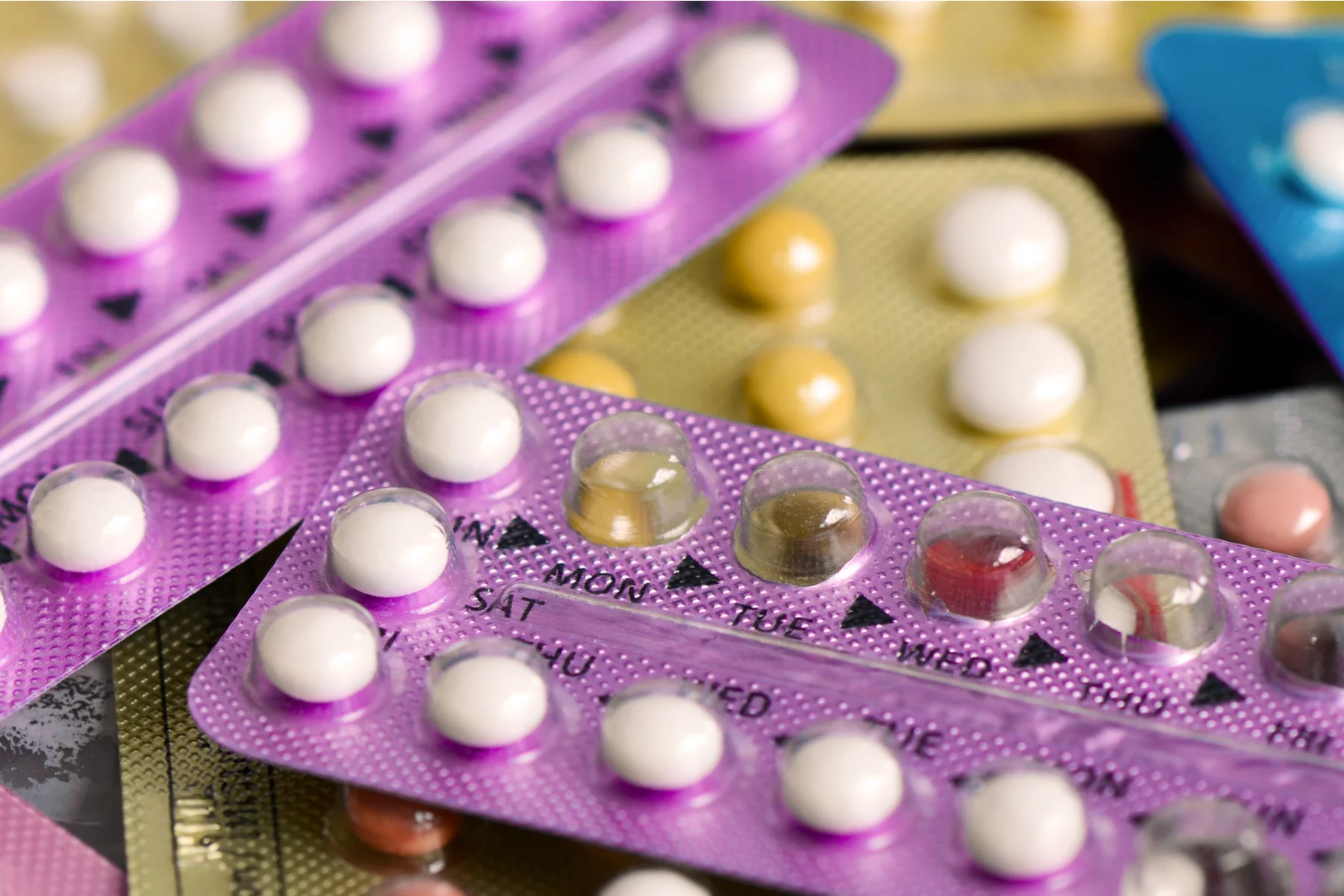
The most widely used form of contraception in the Netherlands is the birth control pill. Around 40% of Dutch women aged 15–30 use this method, while 5–10% of Dutch women use intrauterine devices (IUDs). Diaphragms are the least popular method of birth control in the Netherlands.
Here are some common forms of contraception available in the Netherlands:
- Birth control pill – available at pharmacies with a prescription, and costs around €50 per year
- Condoms – available at pharmacies, supermarkets, and vending machines, and cost between €0.20–0.90 per piece
- Copper IUD – available from your local GP or hospital, and costs between €40–150
- Hormonal IUD – available from your local GP or a hospital, and costs around €160
- Contraceptive implant – available from your local GP or a hospital, and costs between €140–200
- Morning-after pill – available over the counter at Dutch pharmacies. This can cost between €15–25
Pregnancy and childbirth in the Netherlands
The Netherlands offers a high level of postnatal care and is one of the safest places to give birth. Dutch public health insurance covers most maternity costs, including postnatal care at home from a maternity nurse (Kraamzorg).
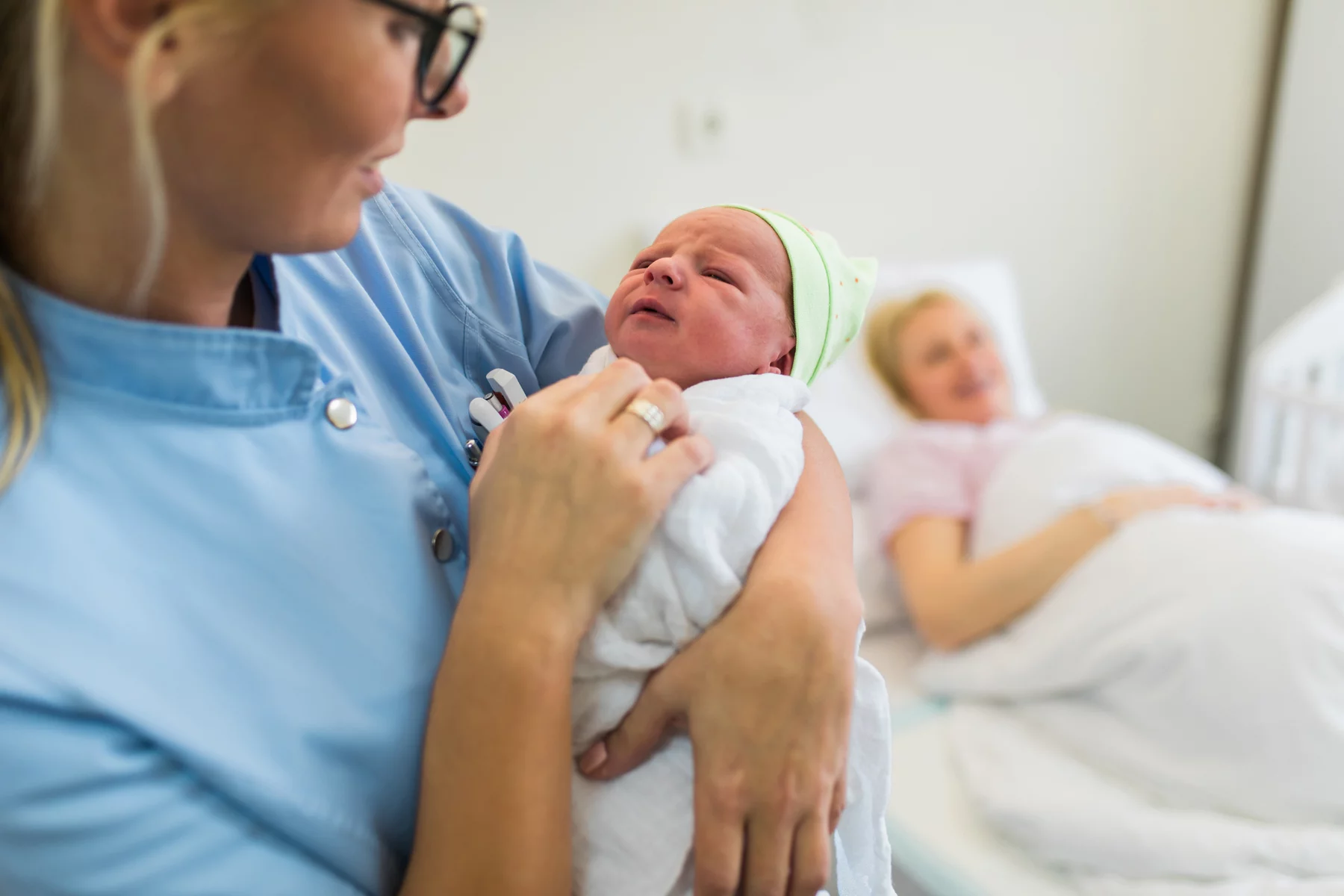
Your GP will usually refer you to a midwife, who handles most prenatal care. You may see more than one midwife during your pregnancy unless you book a midwife of your choice. You can search for midwives in your area on the Royal Dutch Organization of Midwives‘ website (Koninklijke Nederlandse Organisatie van Verloskundigen – KNOV).
Delivery options in the Netherlands
Most women in the Netherlands give birth in a hospital. However, the Netherlands has one of the highest rates of home births of all developed countries. Indeed, as many as one in eight women give birth at home. Other delivery options in the Netherlands include birthing centers (geboortecentrum) and outpatient clinics (poliklinisch), which are available at most hospitals.
Abortion in the Netherlands
Getting an abortion has been legal in the Netherlands since 1984. You can get an abortion up to 21 weeks into your pregnancy according to the Dutch abortion law (Wet afbreking zwangerschap). In certain medical circumstances, this can be extended to 24 weeks. After this period, abortions are only legal if the expectant mother’s life is at risk.
Abortions take place in licensed hospitals and dedicated abortion clinics, and health insurance covers all costs for Dutch residents. You do not need a referral from your GP to get an abortion in the Netherlands. However, you can choose to speak with your GP and they can refer you to a clinic or hospital.
Before getting an abortion, patients need to answer routine questions, such as their reason for wanting an abortion. There is also a mandatory five-day waiting period for patients to consider their decision. You can access further information and support from Fiom, national specialists in unwanted pregnancies.
STIs and STDs in the Netherlands
The Netherlands has relatively low STI and STD rates compared with the rest of the world. According to 2019 data, around 150,782 people in the Netherlands were tested for STIs at a sexual health clinic. 19% of them had at least one STI.
In 2019, the most common STIs and STDs in the Netherlands were chlamydia (60,000 cases), genital warts (45,000 cases), herpes (28,000 cases), and gonorrhea (19,000 cases).
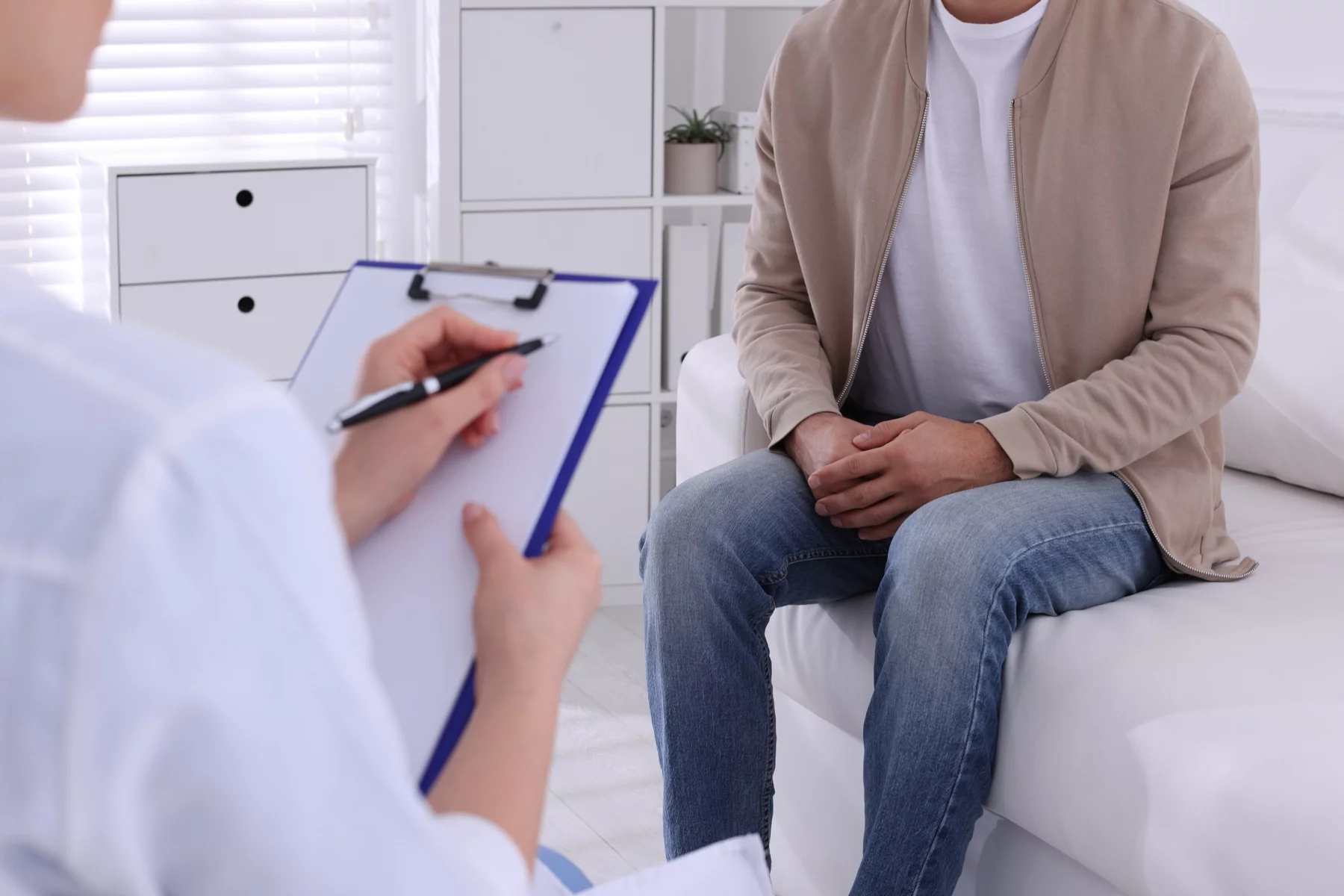
You can get tested at your local GP’s office or at an STI Outpatient Clinic in your area. You can also order an STI self-test kit online. A self-test kit can cost between €30 and €80. Walk-in clinics also offer tests which can start from €100.
People with an increased risk of contracting an STI can get tested and receive treatment at an STI Outpatient Clinic free of charge. If you’re not in a high-risk group, you are advised to make an appointment with your GP. The STI Outpatient Clinic may also refer you to your GP if there’s a long waiting list.
Getting tested at your GP is quick and easy, but there may be costs involved. An STI test from your GP usually needs to be paid from your health insurance deductible (eigen risico). Costs can vary from €40 to over €300 depending on the type and number of tests needed.
HIV/AIDS in the Netherlands
The Netherlands has a low HIV/AIDS rate, with 0.1% of the population being HIV-positive according to 2021 data. There are 24,000 estimated people living with HIV in the Netherlands, with over 400 new diagnoses per year.
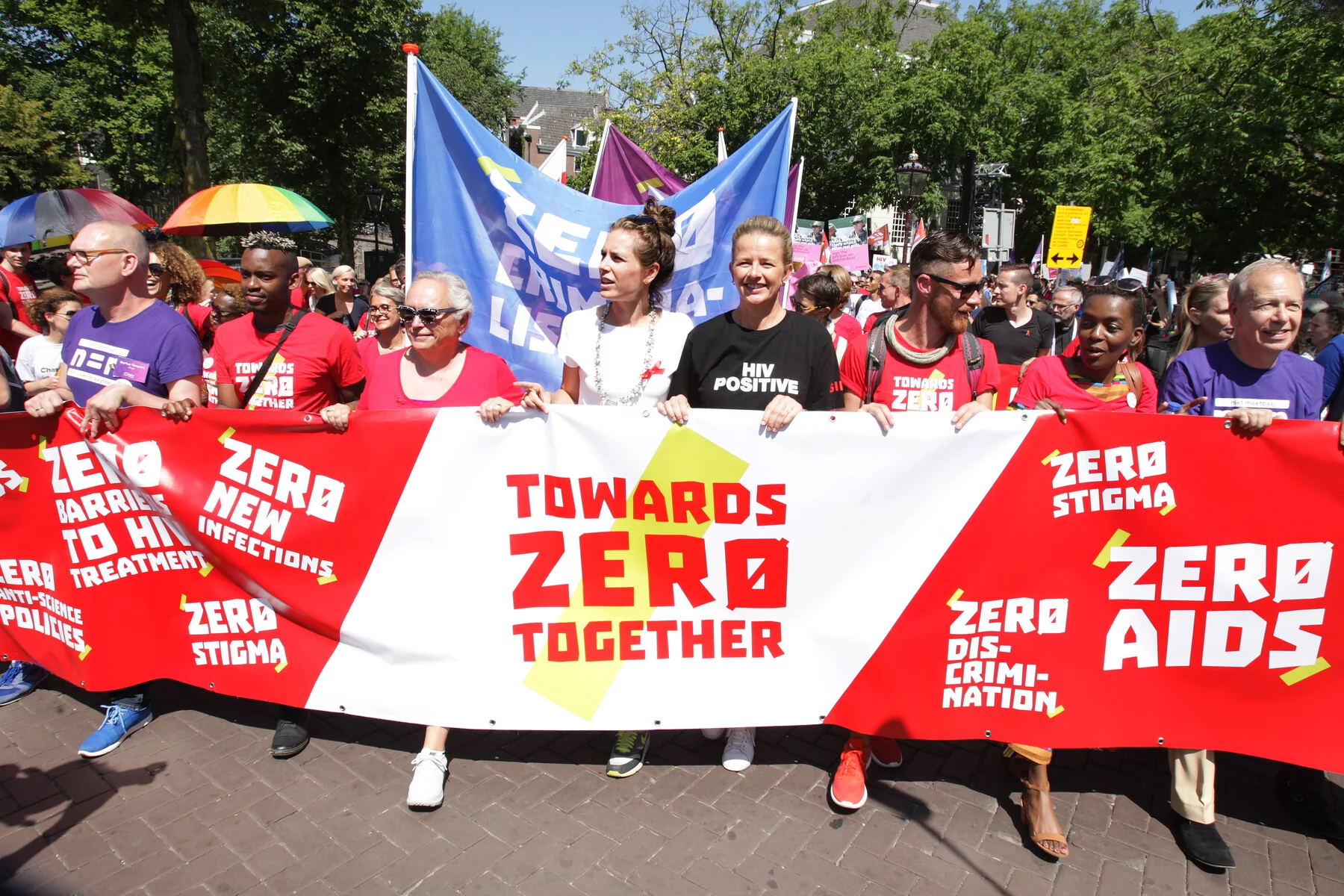
You can get an HIV test at your local GP or at an STI Outpatient Clinic. You can also order a self-test online. Alternatively, you can get help from a variety of community initiatives. AHF Netherlands offers rapid HIV testing and counseling services in Amsterdam. They also have pop-up locations in Rotterdam and elsewhere across the Netherlands. Mantotman.nl also provides information and support related to sexual health and HIV testing.
There are over 20 official HIV treatment centers in the Netherlands, and basic health insurance covers HIV treatment and care. This includes PrEP (Pre Exposure Prophylaxis) medicine, which is available on prescription at Dutch pharmacies. This typically costs €7.50 per 30 tablets.
Erectile dysfunction treatment in the Netherlands
If you experience erectile dysfunction, the first step you can take is to make an appointment with your local GP. Your doctor may prescribe medication for erectile dysfunction or refer you to a specialist, depending on your circumstances.
Three types of licensed medications are available for erectile dysfunction in the Netherlands. You can buy these at pharmacies with a prescription from your GP.
Period products in the Netherlands
The Netherlands offers a wide variety of feminine hygiene products. These include sanitary pads, tampons, and pantyliners, which are available at Dutch supermarkets and pharmacies. Health insurance policies do not cover period products. These products are taxed at a reduced 9% rate. Most products cost between €2 to €6 per pack.
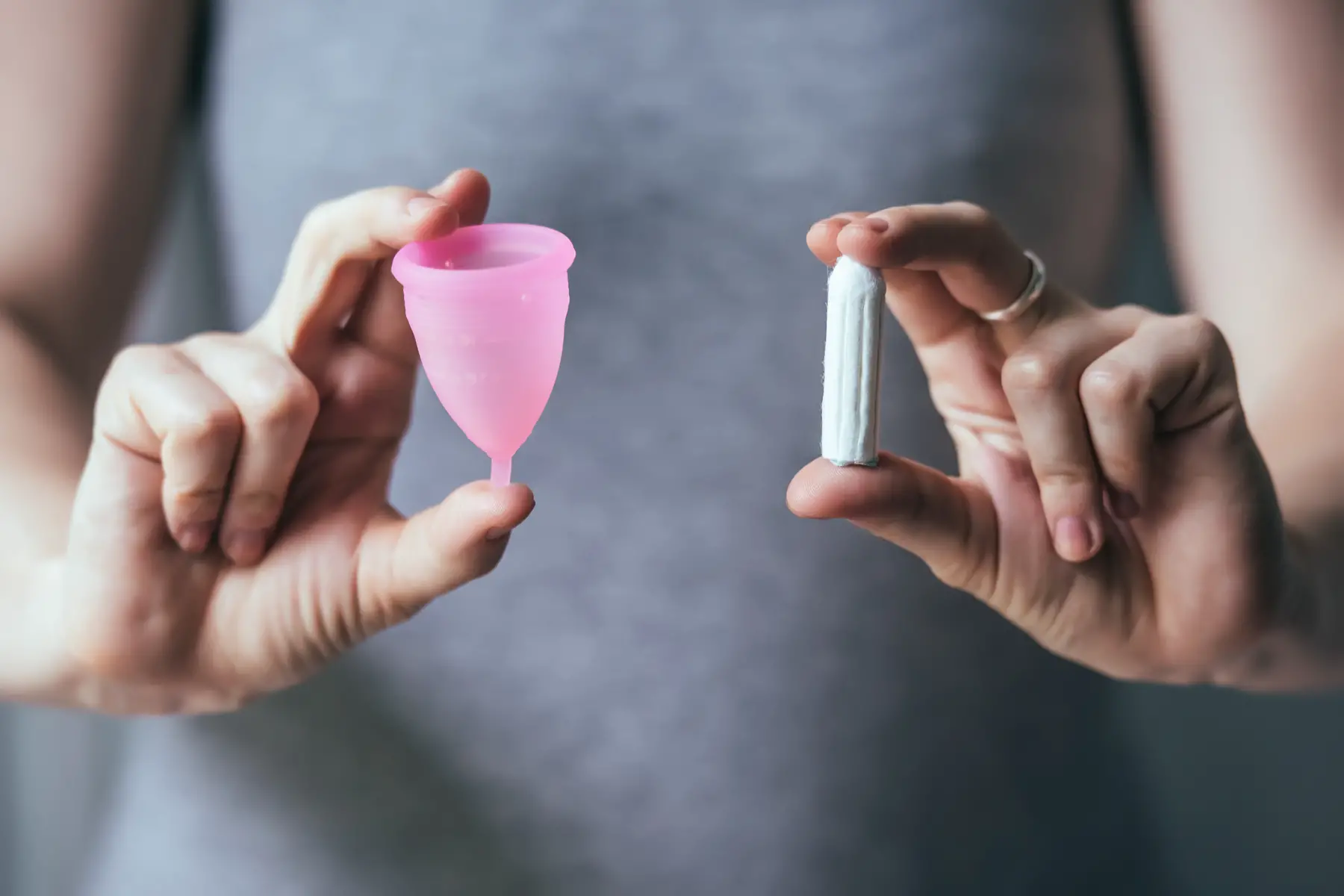
Only around 6% of women in the Netherlands use menstrual cups. You can buy menstrual cups online and at some supermarkets and pharmacies for around €15 to €30.
Cancer screenings in the Netherlands
The Netherlands ranks 10th out of 50 countries with the highest cancer rates, affecting 334.1 people per 100,000 people. In 2020, there were 123,672 new cases of cancer. The most common cancers affecting men are prostate cancer (13,665 cases), skin cancer (11,939 cases), and lung cancer (7,871 cases). For women, the most common cancers are breast cancer (15,613 cases), skin cancer (10,474 cases), and lung cancer (6,849).
Dutch health insurance covers most treatment and medication for cancer. However, certain treatments may require additional coverage from some insurance providers.
The KWF Dutch Cancer Society (KWF Kankerbestrijding) is a nationwide organization for cancer-related work in the Netherlands. It runs advocacy campaigns to help prevent cancer and provide better treatment for cancer patients.
How to get screened for cervical cancer
Women aged between 30 and 60 can get cervical cancer screenings once every five years. Women will receive an invitation to have their first pap smear test when they turn 30. You can get tested easily at your local GP. If you prefer, you can request a self-sampling device which you send off to a laboratory for testing. Cervical cancer screenings in the Netherlands are covered by public health insurance.
How to get screened for breast cancer
Breast cancer is the most common cancer among women in the Netherlands. Women aged 50 to 75 are invited to national breast cancer screenings every two years, which is covered by insurance. A radiologist will conduct a mammogram at a local screening center, and you should receive your results within two weeks.
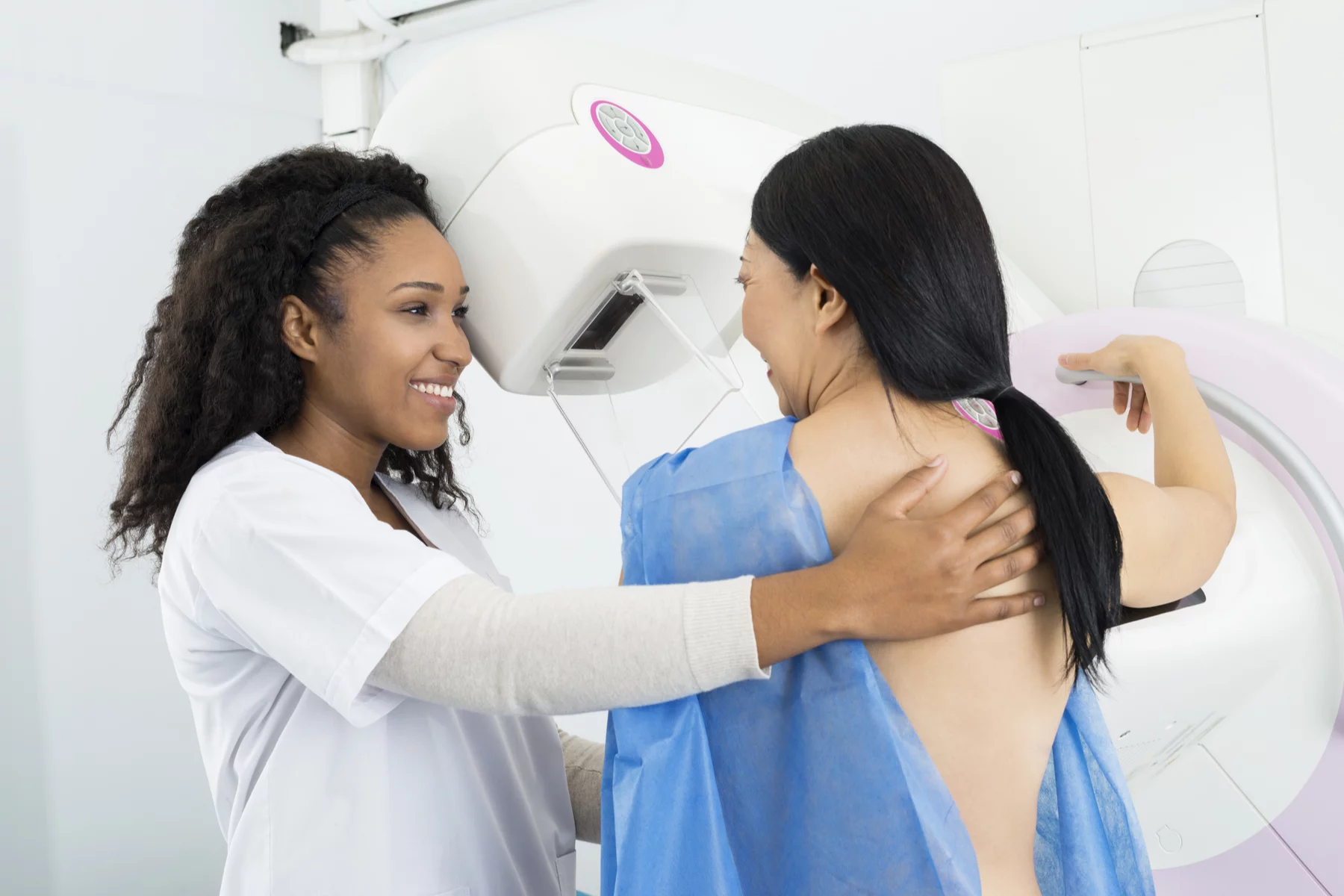
According to data, less than 2.5% of women participating in the screening program are referred to a hospital. If you are outside the target age group and notice any symptoms or abnormalities, you should contact your GP.
How to get screened for ovarian cancer
Ovarian cancer affects approximately 1,300 women every year in the Netherlands, with most patients being around age 60. There are no nationwide screening programs for ovarian cancer in the Netherlands. However, you should visit your GP if you have a family history of ovarian cancer or if you develop any symptoms. Your GP may arrange an ultrasound or blood test.
How to get screened for prostate cancer
Prostate cancer is the most common form of cancer among men in the Netherlands. Most patients are older than 45. There is currently no national screening program for prostate cancer. However, you should visit your GP if you’re concerned about your risks or have any symptoms. They may give you a PSA (prostate-specific antigen) blood test and a physical examination. If needed, they can refer you to a specialist for additional testing, including an MRI scan or a prostate biopsy.
How to get screened for testicular cancer
Testicular cancer is quite rare in the Netherlands, with approximately 800 men diagnosed every year. However, testicular cancer is the most common cancer affecting young men between the ages of 15 and 35. Fortunately, the survival rate is 90 to 100% as long as the cancer is detected early. If you experience symptoms, make an appointment with your GP. They may give you a physical examination and refer you to a specialist for additional tests if needed.
How to get screened for penile cancer
Penile cancer is very rare in the Netherlands, with around 150 men diagnosed every year. Most patients are older than 60, although younger men can also develop penile cancer. Your GP can refer you to a specialist for tests if needed, such as a physical examination, ultrasound, or CT scan.
One-third of penile cancer patients developed a tumor as a result of having HPV. As of 2021, boys in the Netherlands can receive a free HPV vaccination from age 10.
Services dealing with sexual problems in the Netherlands
The Netherlands offers a variety of services for those dealing with sexual problems. This may include low libido, painful intercourse, and difficulty having an orgasm, among others. For more general or minor complaints, you can get advice or over-the-counter treatment from your local pharmacy (apotheek).

You can also visit sexual health clinics which are official partners of the Dutch public health service. This includes clinics such as the Center for Sexual Health (Centrum Seksuele Gezondheid) in The Hague. These clinics offer information and advice about a range of sexual health topics, such as sexual pleasure and gender identity.
Your GP can also offer advice or treatment for sexual problems. If necessary, they may refer you to a specialist. However, treatment from psychologists and sexologists that offer sex therapy is not covered under basic health insurance.
Services dealing with sexual abuse and assault in the Netherlands
Victims of sexual assault should get in touch with their GP or a Sexual Assault Center (Centrum Seksueel Geweld) as soon as possible. Here you’ll receive specialist care from a team of doctors, nurses, psychologists, social workers, and sex therapists. You can reach the freephone number 0800-0188 24/7.
If you wish, the Sexual Assault Center can put you in touch with the police. To make a report to the police directly, you can visit the Dutch police website or phone 0900-8844.
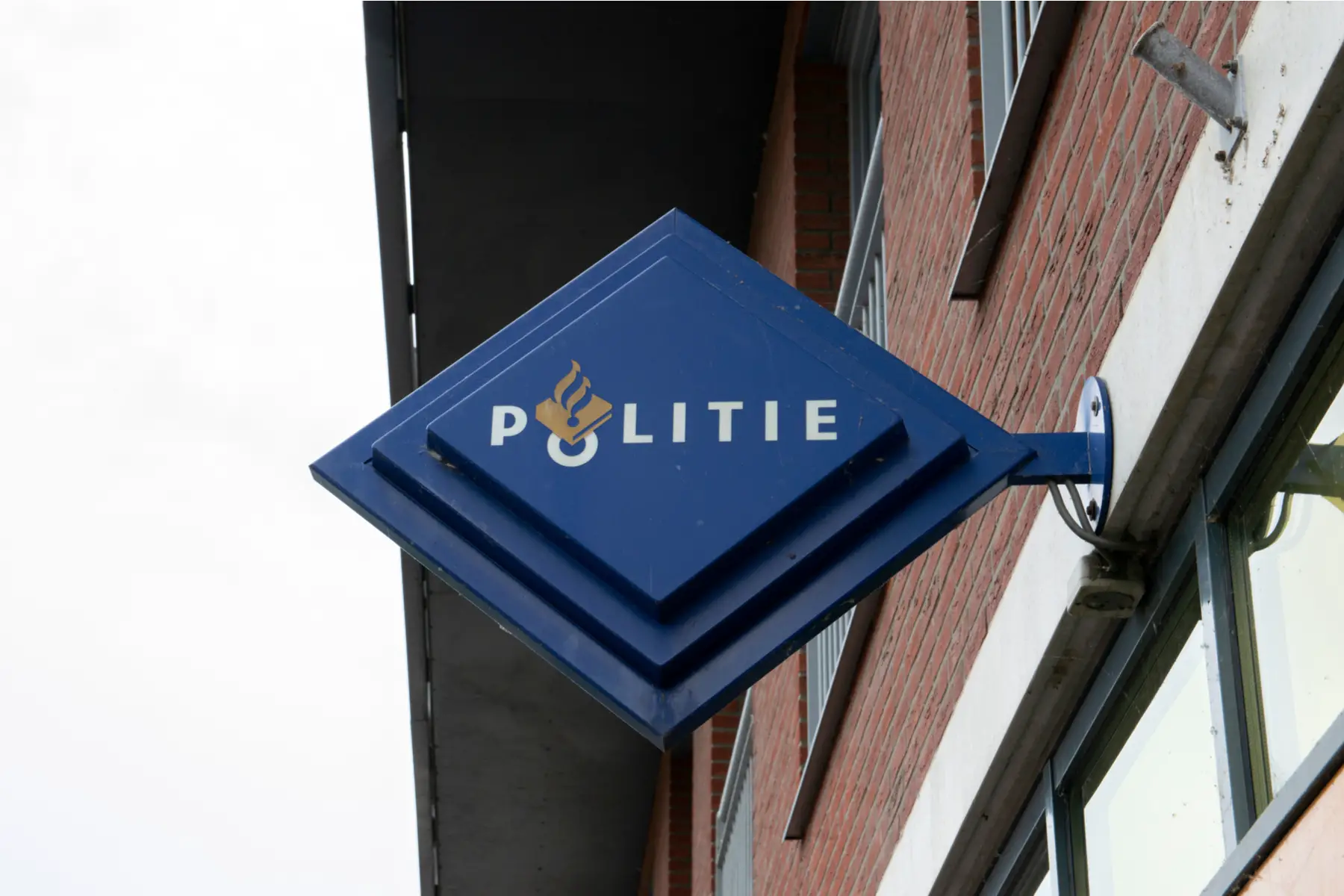
If you prefer, you can also make an appointment with a local sexual health clinic or an STI Outpatient Clinic. When making an appointment, you should indicate that you experienced sexual violence. Victim Support Netherlands (Slachtofferwijzer) also offers support for victims of sexual violence. Their website includes a list of further victim support organizations which offer practical, legal, financial, or emotional assistance.
Young people’s sexual health in the Netherlands
Sex education
Sex education starts at an early age in the Netherlands and is part of the mandatory school curriculum for primary and secondary schools. The Netherlands aims to provide open, clear, and accessible sex education that helps young people prepare for healthy future relationships.
The content of sex education focuses on the use of contraception, STDs, sexual consent, love, and relationships. It also focuses on raising awareness about more positive and pleasurable aspects of sexuality.
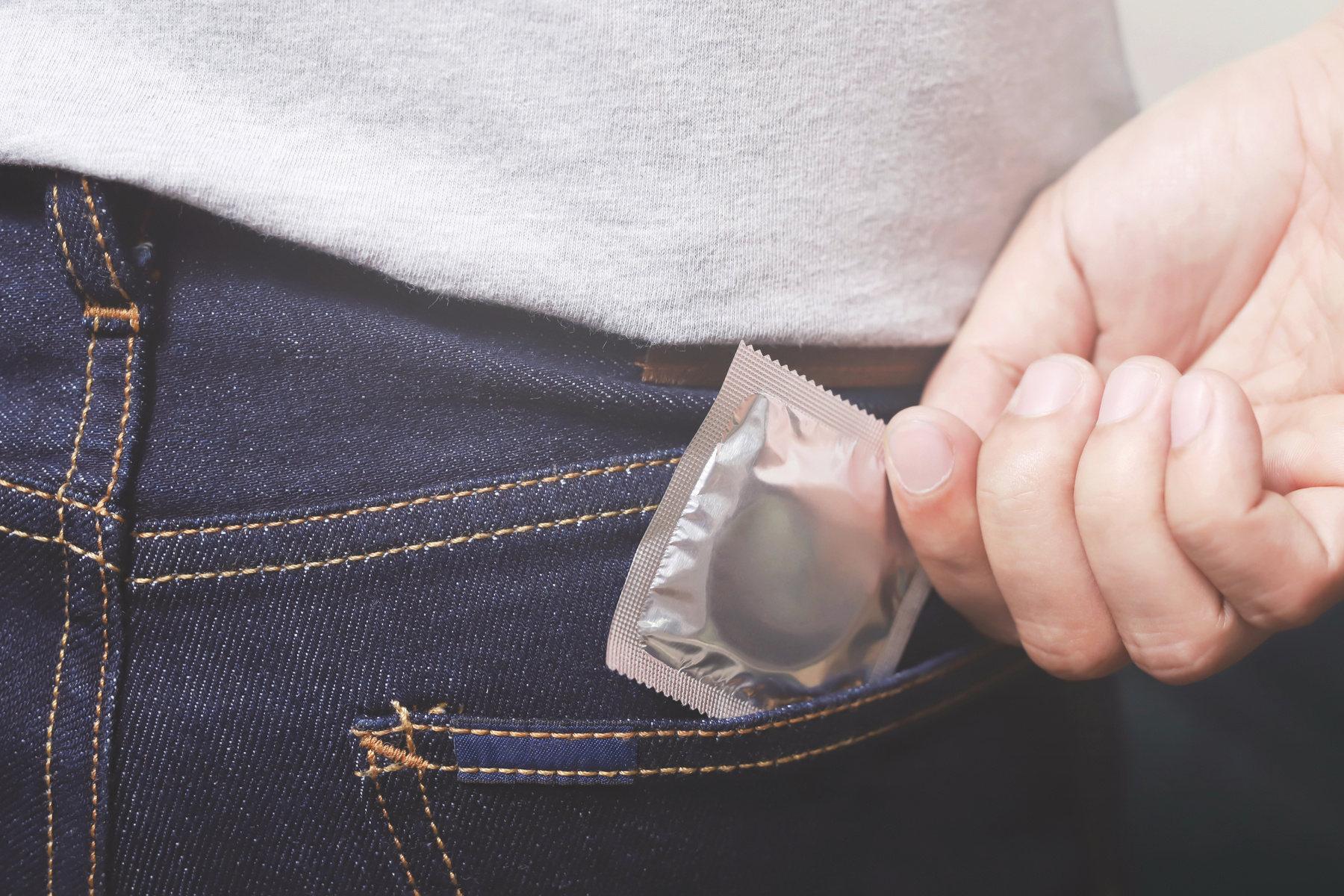
Dutch municipalities also provide mandatory out-of-school sexual health promotion services. This includes sexual counseling, which usually takes place in community centers.
Youth sexual health
The Netherlands’ progressive approach to sex education has attracted global attention because of its impressive record on teen sexual health. A joint study by Rutgers and STI Nederland found that seven out of 10 Dutch students used a condom during their first sexual experience. Data also shows that Dutch teens are among the top users of the birth control pill.
On top of this, the Netherlands has the lowest rate of teenage births out of all EU countries. There are 3.2 Dutch teenage mothers per one thousand girls, according to a report from Statistics Netherlands (Centraal Bureau voor de Statistiek – CBS).
While the Netherlands is ahead of many countries in some areas of youth sexual health, STI rates are increasing among young people. There are high positivity rates of chlamydia in adolescents, affecting 24.6% of girls and 25.1% of boys under 19. Condom usage among under-25s also tends to decrease after their first sexual experience. In 2017, 29% of young men and 19% of young women said they always used a condom with their partners.
Sexual health service for youth in the Netherlands
Apart from sex education at school, Dutch youth have easy access to sexual health services. Sense is a national platform that provides accessible information about sexual and reproductive health for young people in the Netherlands. This includes information about sexual identity, relationships, STIs, and more.
LGBT+ sexual health in the Netherlands
Basic health insurance covers most gender-affirming treatments in the Netherlands. Of course, it’s recommended to consult with your family doctor and insurer before you start on any path. Also, it’s strongly advised you take out legal insurance (rechtsbijstandverzekering) with medical coverage.
Same-sex relationships in the Netherlands
The Netherlands ranks as the seventh most LGBT-friendly country in the world. This reflects the country’s public attitudes and the legal rights and freedoms of LGBT+ people. The Netherlands was the first country in the world to legalize same-sex marriage. Recent polls also show that 90% of people support same-sex marriage.
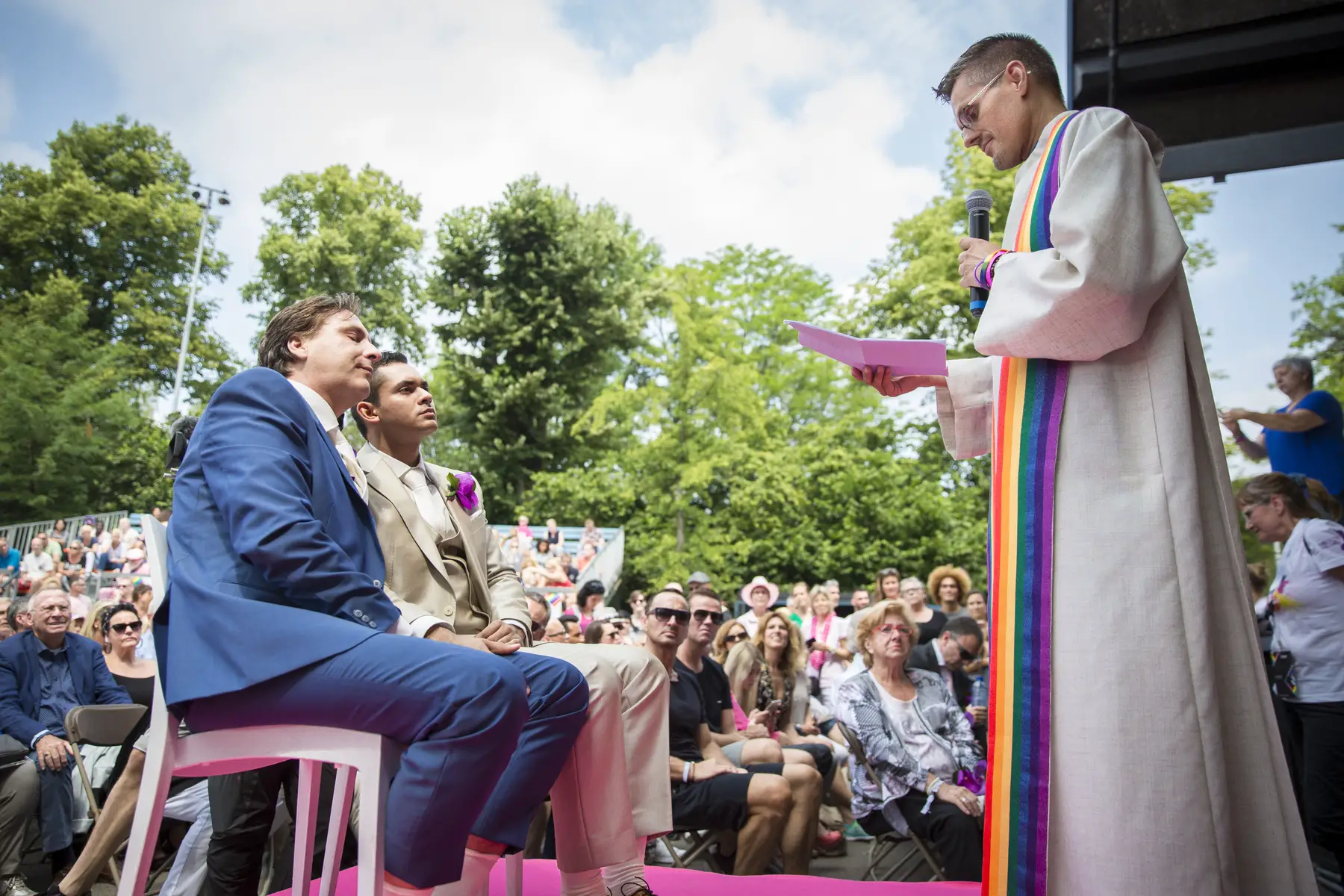
In 2021, there were 1,192 same-sex marriages in the Netherlands, and this figure has remained relatively consistent since 2009. It is also illegal to discriminate against someone for their sexual identity in the Netherlands.
Sexual health for LGBT+ in the Netherlands
Members of the LGBT+ community have the same legal rights as any other Dutch resident, including access to medical care. There are several service centers and resources catered to the LGBT+ community, most of which are based in Amsterdam.
COC Netherlands is the country’s largest and oldest LGBT+ organization. It advocates for equal rights and social acceptance of the LGBT+ community in the Netherlands and around the world. Sense also provides information and advice about sexual health, sexual identity, and relationships catered to LGBT+ youths.
Useful resources
- RIVM – National Institute for Public Health and the Environment (Rijksinstituut voor Volksgezondheid en Milieu)
- GGD – Dutch Public Health Service (Gemeentelijke Gezondheidsdienst)
- NVOG – Dutch Society for Obstetrics and Gynecology (Nederlandse Vereniging voor Obstetrie en Gynaecologie)
- SOA Aids Nederland – provides information and advice about STIs, testing options, and safe sex
- Sense – provides information and advice for young people about sex and relationships
- Rutgers – provides information and advice about sexuality
- Fiom – provides information and support related to abortions and family planning


